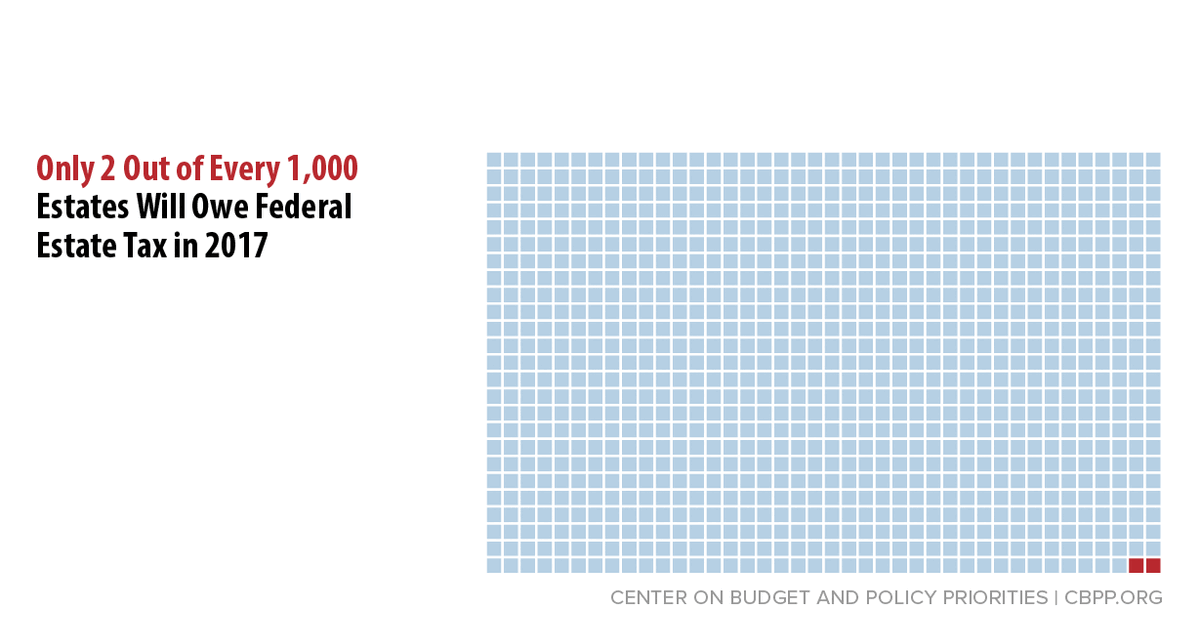Topic How much estate tax philippines: The estate tax in the Philippines is an important aspect to consider when planning your assets for the future. With no inheritance tax in place, the 6% estate tax ensures the proper transfer of assets from the decedent taxpayer to their beneficiaries. This tax helps maintain an organized and fair system for distributing wealth and promotes financial stability within the country. Careful estate planning can help individuals navigate this tax and ensure a smooth transfer of assets to their loved ones.
Table of Content
- How much is the estate tax in the Philippines?
- What is the current estate tax rate in the Philippines?
- How is the estate tax calculated in the Philippines?
- YOUTUBE: Estate Tax in the Philippines: Tagalog Explanation
- Are there any exemptions or deductions available for estate tax in the Philippines?
- What assets are included in the calculation of the estate tax in the Philippines?
- Are there any specific rules or regulations regarding the transfer of property in the Philippines upon the death of a taxpayer?
- Are there any penalties or interest associated with late payment or non-payment of the estate tax in the Philippines?
- Is there a deadline for filing and paying the estate tax in the Philippines?
- Are there any circumstances under which the estate tax in the Philippines can be waived or reduced?
- What are the implications of the estate tax on heirs and beneficiaries in the Philippines?
How much is the estate tax in the Philippines?
The estate tax rate in the Philippines is currently set at 6% of the total net estate. Here is a step-by-step breakdown of how the estate tax is calculated:
1. Determine the Gross Estate: The gross estate includes all the assets and properties owned by the deceased person at the time of their death. This can include real estate, bank accounts, investments, businesses, and personal belongings.
2. Deduct Allowable Deductions: From the gross estate, certain allowable deductions can be subtracted to arrive at the net taxable estate. These deductions may include funeral expenses, medical expenses related to the last illness, claims against the estate, and any outstanding debts of the deceased.
3. Compute the Net Taxable Estate: Subtract the allowable deductions from the gross estate to calculate the net taxable estate.
4. Apply the Tax Rate: Once the net taxable estate is determined, it is then subject to a flat tax rate of 6%.
5. Pay the Estate Tax: The estate tax must be paid within six months from the decedent\'s death or within 30 days after the court\'s approval of the payment if it is settled judicially.
It\'s important to note that estate tax rates and regulations can change, so it\'s always advisable to consult with a professional tax advisor or consult the Bureau of Internal Revenue (BIR) in the Philippines for the most up-to-date information.

READ MORE:
What is the current estate tax rate in the Philippines?
The current estate tax rate in the Philippines is 6% of the net estate. Here is a step-by-step explanation:
1. Start by determining the gross estate: The gross estate includes all the properties, assets, and interests owned by the decedent at the time of their death. This includes real estate, personal property, investments, and other assets.
2. Deduct allowable expenses and liabilities: Certain deductions are allowed to arrive at the net estate. These deductions may include funeral expenses, judicial expenses, claims against the estate, and unpaid mortgages or debts.
3. Calculate the net estate: Subtract the allowable deductions from the gross estate to arrive at the net estate. This is the value on which the estate tax will be levied.
4. Apply the estate tax rate: The current estate tax rate in the Philippines is 6% of the net estate.
5. Calculate the estate tax to be paid: Multiply the net estate value by the estate tax rate (6%) to determine the amount of estate tax that needs to be paid.
6. Pay the estate tax: The estate tax must be paid within six months from the decedent\'s death. The payment is done through the filing of an Estate Tax Return (BIR Form 1801) and settling the tax amount with the Bureau of Internal Revenue (BIR).
It\'s important to note that estate tax laws may change over time, so itâs advisable to consult an accountant or tax professional for the most up-to-date information and guidance.
How is the estate tax calculated in the Philippines?
In the Philippines, the estate tax is imposed on the assets of the decedent taxpayer. Here is how it is calculated:
1. Determine the Gross Estate: The Gross Estate includes all the properties and interests owned by the decedent taxpayer at the time of their death. This includes real estate, personal property, intangible assets, and any other assets owned in the Philippines or abroad.
2. Deduct Allowable Deductions: After determining the Gross Estate, you subtract the allowable deductions from it. These deductions may include funeral expenses, claims against the estate, unpaid mortgages, and family home deductions, among others.
3. Calculate the Net Taxable Estate: The Net Taxable Estate is computed by subtracting the allowable deductions from the Gross Estate. This is the amount on which the estate tax will be imposed.
4. Apply the Estate Tax Rates: The estate tax rates in the Philippines start at 6% and increase gradually depending on the value of the Net Taxable Estate. The higher the estate\'s value, the higher the tax rate. It is important to note that the rates may change over time, so it\'s advisable to refer to the latest tax rules and regulations.
5. Compute the Estate Tax: To compute the estate tax, you multiply the Net Taxable Estate by the applicable estate tax rate. The resulting amount is the estate tax that needs to be paid.
6. Take into Account Any Tax Credits or Payments: It\'s important to consider any tax credits or payments that have already been made on the estate. These can be deducted from the calculated estate tax amount.
7. Pay the Estate Tax: Finally, the estate tax must be paid to the Bureau of Internal Revenue (BIR) within six months from the decedent taxpayer\'s date of death. Failure to pay the estate tax within the given time frame may result in penalties and interest.
Please note that estate tax laws and regulations can vary, and it is always advisable to consult with a tax professional or the BIR for the most accurate and up-to-date information regarding estate taxes in the Philippines.
Estate Tax in the Philippines: Tagalog Explanation
Learn about estate tax and how it affects your financial planning. Discover effective strategies to manage and minimize estate tax burdens. Watch our video to gain valuable insights and make informed decisions about your estate\'s future.
Are there any exemptions or deductions available for estate tax in the Philippines?
Yes, there are exemptions and deductions available for the estate tax in the Philippines. Here is a step-by-step explanation:
1. Determine the gross estate: The first step in calculating the estate tax is determining the gross estate. This includes all the properties, real or personal, of the decedent taxpayer at the time of their death, wherever they may be located.
2. Deduct allowable deductions: After determining the gross estate, certain deductions can be made to arrive at the net taxable estate. These deductions include funeral expenses, judicial expenses, medical expenses, and the family home deduction.
3. Calculate the Net Taxable Estate: Subtract the total allowable deductions from the gross estate to arrive at the net taxable estate.
4. Apply the Tax Rates: Once the net taxable estate is determined, the estate tax rates are applied. In the Philippines, the estate tax is imposed at a progressive rate, ranging from 5% to 20% based on the net taxable estate amount.
5. Exemptions: There are certain exemptions available for the estate tax. For example, the first Php 10 million of the net estate is exempted from estate tax. This means that if the net taxable estate does not exceed Php 10 million, no estate tax will be imposed.
6. Family Home Deduction: Additionally, a family home deduction is allowed. The family home, which is the principal residence of the decedent, is deducted from the gross estate up to a maximum amount of Php 10 million.
It is important to note that the estate tax rules and exemptions may be subject to change and it is advisable to consult with a tax professional or the Bureau of Internal Revenue (BIR) for the most updated information and guidance regarding estate tax in the Philippines.
What assets are included in the calculation of the estate tax in the Philippines?
In the Philippines, the estate tax is imposed on the assets of a decedent taxpayer. The tax is calculated based on the net estate, which includes the following assets:
1. Real Property: This includes land, buildings, and other immovable properties owned by the decedent at the time of their death.
2. Personal Property: This includes tangible assets such as cash, jewelry, cars, furniture, and other movable properties owned by the decedent.
3. Intangible Property: This includes assets such as stocks, bonds, mutual funds, insurance policies, bank deposits, and other financial instruments owned by the decedent.
4. Business Interests: Any ownership interests in partnerships, corporations, or sole proprietorships owned by the decedent are also included in the estate.
5. Retirement Benefits: This includes the decedent\'s pension, retirement plans, and other similar benefits that have not been distributed or received before their death.
It is important to note that certain deductions and exclusions may apply in calculating the net estate. These deductions may include funeral expenses, claims against the estate, and conjugal and community property deductions, among others.
To accurately calculate the estate tax in the Philippines, it is advisable to consult with a tax professional or seek guidance from the Bureau of Internal Revenue (BIR) to ensure compliance with the applicable laws and regulations.
_HOOK_
Are there any specific rules or regulations regarding the transfer of property in the Philippines upon the death of a taxpayer?
Yes, there are specific rules and regulations regarding the transfer of property in the Philippines upon the death of a taxpayer. The relevant regulation is the Estate Tax Law, which imposes a tax on the transfer of assets of a decedent taxpayer.
Here are the steps involved in the transfer of property after the death of a taxpayer in the Philippines:
1. Determining the estate: The first step is to determine the assets and liabilities of the decedent taxpayer. This includes real estate properties, bank accounts, investments, personal belongings, and any other valuable assets.
2. Valuation of the estate: The assets of the estate need to be appraised and valued at their fair market value as of the date of death. This is done to determine the total value of the estate.
3. Filing of the estate tax return: The estate tax return should be filed with the Bureau of Internal Revenue (BIR) within six months from the date of the decedent\'s death. The return should include all the necessary information about the decedent\'s assets and liabilities.
4. Payment of estate tax: Based on the total value of the estate, the BIR will assess the amount of estate tax payable. The estate tax rate is currently 6% of the net estate, but there are certain deductions and exemptions allowed by law. The payment should be made within six months from the date of death.
5. Estate tax clearance: After the payment of estate tax, the BIR will issue an estate tax clearance, also known as a Certificate Authorizing Registration (CAR). This document is required to transfer or register the decedent\'s assets to the heirs or beneficiaries.
6. Transfer of property: With the estate tax clearance, the heirs or beneficiaries can now proceed with the transfer of the decedent\'s property. This can involve the transfer of land titles, bank accounts, investments, and other assets into the names of the heirs or beneficiaries.
It is important to note that the process may vary depending on the specific circumstances and requirements of each case. It is advisable to consult with a lawyer or tax professional who can provide guidance and assistance in navigating the estate transfer process in the Philippines.
Vince Rapisura 2024: How much is the estate tax?
Discover the expertise of Vince Rapisura, renowned financial literacy advocate, as he shares his knowledge on estate tax. Join him in this video as he unravels the complexities of estate tax and provides practical tips on how to navigate this aspect of your financial journey with confidence.
Estate Tax Amnesty extended until 2025 - Newsroom Ngayon
Curious about estate tax amnesty? Wondering how it can impact your financial situation? Watch our informative video to understand the concept of estate tax amnesty and how it can potentially benefit you. Don\'t miss out on this opportunity to explore options and optimize your estate planning.
Are there any penalties or interest associated with late payment or non-payment of the estate tax in the Philippines?
In the Philippines, there are penalties and interest associated with the late payment or non-payment of estate tax. Here is a step-by-step explanation:
1. Estate Tax: Estate tax is a tax imposed on the total value of the assets left by a deceased person. In the Philippines, the estate tax rate is 6% of the net estate value.
2. Payment Deadline: The estate tax should be paid within six months from the decedent\'s death, or within a period granted by the Commissioner of Internal Revenue, if an extension is requested.
3. Penalties for Late Payment: If the estate tax is not paid within the prescribed deadline, penalties will be imposed. The penalty is 25% of the unpaid tax plus 20% interest per annum. The interest is computed from the original due date until the tax is fully paid.
4. Additional Penalties: Apart from the penalties mentioned above, the law also provides for additional penalties for failure to file the estate tax return within the given period. These penalties can range from 25% to 50% of the basic tax, depending on the length of the delay in filing.
5. Tax Amnesty: The Philippine government has implemented tax amnesty programs in the past, which offer reduced penalties and interest for the late payment of estate tax. These programs provide an opportunity for delinquent taxpayers to settle their tax obligations with reduced financial burden.
It is crucial to note that tax laws and regulations can change over time, so it is always recommended to consult with a tax professional or the Bureau of Internal Revenue (BIR) for the most up-to-date information on estate tax penalties and requirements in the Philippines.

Is there a deadline for filing and paying the estate tax in the Philippines?
Yes, there is a deadline for filing and paying the estate tax in the Philippines. The deadline for filing the estate tax return is within six (6) months from the decedent\'s death. This means that the estate tax return must be submitted to the Bureau of Internal Revenue (BIR) within six months of the date of death of the taxpayer.
In addition to the filing deadline, there is also a deadline for paying the estate tax. The payment of the estate tax is generally due at the same time as the filing of the estate tax return. However, if the estate is valued at more than P5 million, the taxpayer may choose to pay the tax in installments. In this case, the first installment must be paid upon filing the estate tax return, and the balance must be paid in equal monthly installments within two years from the filing of the return.
It is important to note that late filing or late payment of the estate tax may result in penalties and interests being imposed by the BIR. Therefore, it is advisable to comply with the filing and payment deadlines to avoid any additional costs or complications. It is recommended to consult with a tax professional or the BIR for specific and up-to-date information regarding the estate tax filing and payment deadlines in the Philippines.
Are there any circumstances under which the estate tax in the Philippines can be waived or reduced?
Yes, there are circumstances under which the estate tax in the Philippines can be waived or reduced. Here are some situations where this may apply:
1. Family Home Exemption: The estate tax on a decedent\'s family home can be waived if the property is the permanent residence of the deceased and is valued at up to 10 million Philippine pesos (PHP). This exemption applies regardless of where the property is located in the Philippines.
2. Small Estate Exemption: If the value of the estate subject to taxation does not exceed 200,000 PHP, the estate tax may be completely waived.
3. Tax Treaty Relief: The Philippines has entered into tax treaties with several countries to avoid double taxation. If the deceased person\'s estate includes assets outside of the Philippines and the respective tax treaty provides relief or limits the estate taxation, the tax liability may be reduced or waived.
4. Donations to Qualified Institutions: If the decedent made donations to qualified institutions during their lifetime, the estate tax may be reduced by the amount of the donations.
It is important to note that the specific requirements and procedures for claiming these exemptions or reductions may vary, and it is advisable to consult with a tax advisor or estate lawyer for proper guidance and assistance in your specific case.

What are the implications of the estate tax on heirs and beneficiaries in the Philippines?
The estate tax in the Philippines is imposed on the assets of a decedent taxpayer at a rate of 6%. Here are the implications of the estate tax on heirs and beneficiaries in the Philippines:
1. Financial burden: The estate tax can create a financial burden on the heirs and beneficiaries because they need to pay a certain percentage of the estate\'s total value. This can reduce the inheritance they receive.
2. Settlement period: Before the heirs and beneficiaries can fully claim their inheritance, the estate tax must be settled first. This process might take some time, delaying the distribution of assets.
3. Estate valuation: To determine the estate tax amount, the assets of the decedent taxpayer need to be assessed and valued. This can be a complex process, involving appraisers and tax authorities. Accurate valuation is important to ensure fair taxation.
4. Estate tax return: The heirs or administrators of the estate are responsible for filing an estate tax return with the Bureau of Internal Revenue (BIR). This includes providing necessary documentation, such as the deceased person\'s assets, debts, and deductions.
5. Payment of estate tax: The estate tax must be paid within six months from the decedent\'s death, or within a reasonable extension granted by the BIR. Failure to pay the tax on time may result in penalties and interest.
6. Exemptions and deductions: There are certain exemptions and deductions available under Philippine law that can minimize the estate tax liability. For example, family homes and small businesses may be exempted or subjected to lower tax rates.
7. Estate planning: Heirs and beneficiaries can engage in estate planning to minimize the impact of the estate tax. This may involve strategies such as creating trusts, making charitable donations, or transferring assets before death.
8. Professional assistance: Due to the complexities of estate taxation, it is advisable for heirs and beneficiaries to seek the assistance of tax professionals or lawyers with expertise in estate planning and tax laws.
It is important to note that tax regulations are subject to change, so it is recommended to consult with a professional for the most up-to-date and accurate information regarding the implications of the estate tax on heirs and beneficiaries in the Philippines.
_HOOK_
READ MORE:
Who pays Estate Tax and what are the requirements? - Kaalamang Legal #77
Who pays estate tax? If you\'ve ever wondered about the answer to this question, our video provides clarity. Delve into the intricacies of estate tax and discover who bears the responsibility of paying it. Gain a deeper understanding of this topic that has implications for your financial future and watch the video today.













